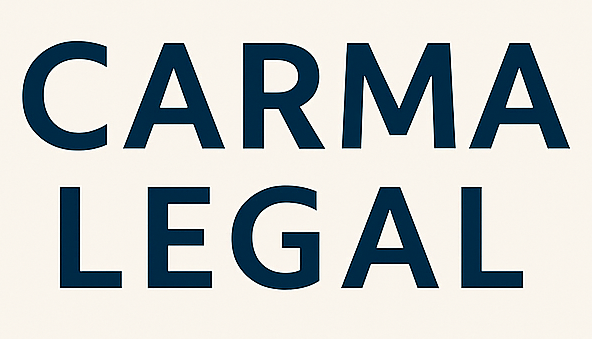Understanding how a trusts lawyer protects your family’s future starts with knowing what a trust can do for you. A trusts lawyer can help you create a solid framework for managing and distributing your assets, ensuring your wishes are honored and your loved ones are cared for. By working with a skilled trusts lawyer, you gain peace of mind and proactive planning that can prevent costly disputes, avoid probate delays, and preserve your family’s financial security.
Trust attorneys act as architects guiding the drafting process to ensure your trust operates smoothly and complies with state and federal laws [1]. Whether you need an expert in creating a revocable living trust or an irrevocable vehicle for asset protection, the right counsel will tailor solutions to your unique circumstances.
Understanding trust basics
What is a trust?
A trust is a legal arrangement where you, the grantor, transfer assets to a fiduciary, or trustee, to manage for the benefit of named beneficiaries. By separating legal ownership from beneficial enjoyment, a trust provides flexibility in asset distribution, ongoing management, and protection from probate. You maintain control over how and when assets pass on, which can be crucial if beneficiaries are minors or have special needs.
Types of trusts
Different goals call for different trust vehicles. Your trusts lawyer will explain options and help you choose the right structure.
Revocable living trusts
A revocable living trust lets you amend or revoke the trust during your lifetime. You retain control of trust assets and can adjust your plan as circumstances change. Upon your death, the successor trustee distributes assets without probate. To set one up, you might work with a living trust attorney or a revocable trust lawyer.
Irrevocable trusts
An irrevocable trust generally cannot be altered once established. By relinquishing control, you gain stronger protection from creditors, lawsuits, and Medicaid spend down—assets in a properly drafted irrevocable trust are typically not considered available resources for Medicaid applicants [2]. When asset protection is a priority, consult an irrevocable trust attorney.
| Feature | Revocable living trust | Irrevocable trust |
|---|---|---|
| Control | Grantor retains full control | Trustee holds control |
| Modification | Can be amended or revoked | Generally cannot be changed |
| Probate avoidance | Yes | Yes |
| Creditor protection | Limited | Strong |
| Medicaid eligibility | Assets may count | Excluded when properly structured |
| Tax treatment | Assets included in estate | May offer gift or estate tax benefits |
Exploring trust benefits
Avoiding probate delays
A primary advantage of trusts is bypassing probate. Assets held in trust transfer directly to beneficiaries, avoiding court supervision and reducing administrative costs. Assets in a living trust avoid probate fees and public filings [3]. As a result, your loved ones can access what they need more quickly.
Protecting your privacy
Probate records are public. By contrast, trusts generally remain private documents. With a trust, details of your assets and distributions stay confidential, shielding your family’s financial information from public view.
Providing ongoing support
Trusts can provide steady support for beneficiaries over time. You can schedule distributions by age, milestone, or need, ensuring funds last and are used as you intend. This is especially valuable when beneficiaries are young or inexperienced in managing lump sums.
Tailoring for special needs
Specialized trusts safeguard benefits for individuals with disabilities. A special needs trust lawyer can structure a supplemental trust that preserves eligibility for government programs while enhancing quality of life.
Core lawyer services
Drafting trust documents
Your trusts lawyer drafts clear, legally sound documents aligned with your goals and compliant with state law. They detail trustee powers, distribution schedules, and successor appointments. Working with an estate planning documents lawyer ensures enforceability and minimizes ambiguity.
Funding your trust
Drafting is only the first step. You must transfer assets—real estate, investments, bank accounts—into the trust. A trust attorney helps you retitle property, update beneficiary designations, and coordinate with custodians. Proper funding prevents unintended probate. For specialized asset protection, you may also consult an asset protection trust attorney [4].
Appointing trustees
Choosing the right trustee is crucial. Your lawyer advises on selecting an individual or corporate trustee of impeccable character and experience. A family trust attorney can guide you through naming a backup trustee or professional fiduciary to ensure continuity.
Administering trusts
Once established, trusts require ongoing management. You may need periodic accountings, tax filings, or discretionary distributions. Your trusts lawyer remains available to interpret plan language, manage investments, and handle administrative tasks, providing the support necessary for lasting preservation.
Resolving conflicts
Disputes can arise between trustees and beneficiaries. A skilled trusts attorney anticipates potential conflicts, drafts dispute-resolution clauses, and, if needed, mediates or litigates to protect the trust’s integrity. Their proactive approach helps prevent costly legal battles.
Choosing your counsel
Checking credentials
Look for certifications and affiliations that indicate specialization in trust law. Board certification in wills, trusts, and estates or membership in the American College of Trust and Estate Counsel (ACTEC) demonstrates rigorous expertise [5].
Evaluating experience
Consider attorneys who focus on comprehensive trusts work and have a proven track record. Firms labeled as a comprehensive estate planning lawyer or estate planning law firm often have teams to support complex needs. Ask about the number of trusts drafted, asset protection matters handled, and average estate size managed.
Assessing communication
You need clear, timely updates. During your initial consultation, note how well the lawyer listens and explains concepts. Ask questions such as:
- How will you keep me informed of progress?
- What is your response time for emails or calls?
- Can you walk me through a recent trust case?
Understanding fees
Fee structures vary. Some attorneys charge a flat fee for trust drafting, others bill hourly, or combine with a retainer. Request a clear fee agreement outlining services covered, potential additional costs, and billing practices to avoid surprises.
Working with advisors
Collaborating with planners
Your estate plan works best when aligned with financial and tax strategies. You might coordinate with:
- Certified financial planners
- Accountants or CPAs
- Insurance advisors
- Elder law estate planning lawyer for Medicaid planning
By collaborating, you build a team that addresses every aspect of your legacy.
Coordinating legal experts
Your trusts attorney often works alongside specialists to ensure your documents integrate smoothly.
Powers of attorney
Durable and medical powers of attorney let trusted agents act on your behalf if you cannot. Consult a durable power of attorney lawyer, a medical power of attorney attorney, or a financial power of attorney lawyer.
Advance directives
Advance directives and living wills communicate your healthcare wishes. An advance directive lawyer or living will lawyer ensures your instructions comply with state requirements.
Wills and other documents
While trusts handle many assets, a will serves as a safety net for any property not titled in trust. A wills lawyer or last will and testament attorney can draft a will that complements your trust. For strategies focused on avoiding probate entirely, seek a probate avoidance estate planning lawyer.
Maintaining your plan
Scheduling regular reviews
Trust law and your circumstances evolve. Experts recommend reviewing your trust every three to five years or after major life events [6]. Regular check-ins ensure your plan remains aligned with your goals and current laws.
Updating for life changes
Life’s milestones call for updates. Common triggers include:
- Marriage or divorce
- Birth or adoption of a child
- Significant changes in assets or business interests
- Relocation to a new state
- Shifts in tax legislation
By promptly adjusting your trust, you maintain comprehensive coverage and avoid unintended gaps.
Taking the next step
Proactive planning with a seasoned trusts lawyer offers peace of mind, asset protection, and a clear roadmap for your family’s future. Whether you need help drafting enforceable trust documents, funding and administering your trust, or coordinating with other legal specialists, the right attorney delivers individualized planning and ongoing support.
To begin securing your legacy, reach out to an experienced estate planning attorney or schedule a consultation with a dedicated trust attorney for families. Your proactive steps today will safeguard your family and ensure your wishes guide tomorrow.








